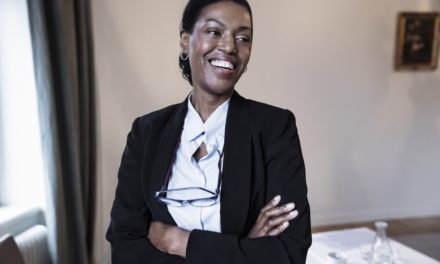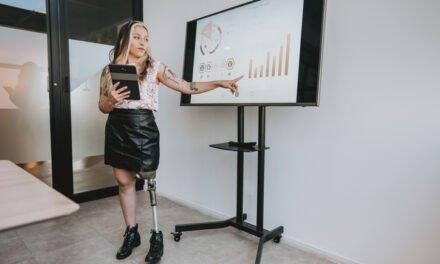
I recently found myself in the midst of an existential crisis.
I live in a state that continually legislates exclusion. Over the past few years, we have legislated against abortion, transgender people, and critical race theory. Even now, there are all sorts of debates and investigations into teachers who might be using “critical race theory” that leaves our overworked and underpaid teachers afraid to teach actual history to their students.
All of these decisions were made at the legislative level. There were no votes for regular people like me; these decisions happened in the halls of the Capitol. This indicates to me that we need new legislation. Yet, because of the politics of the state I live in, these same legislators continue to get elected.
This has made me feel helpless. Decisions happen at levels I am not involved in, so it feels like I have no control. I will never take for granted the right to vote, but my vote seems impotent. It feels as if all of the deep-seated exclusion around me is outside of my power to change.
However, I am a professor. And teaching is one area where we do have power to change. When I begin to feel helpless, I turn even deeper into my own work — the places I can influence and maybe make some tiny changes.
I am a professor. And teaching is one area where we do have power to change. When I begin to feel helpless, I turn even deeper into my own work — the places I can influence and maybe make some tiny changes. Click To TweetPerhaps you have felt this helplessness in any array of ways over the last couple of years. It is an easy feeling to have. But we cannot give up or stand still, so here is an easy four-step process to make a difference when you feel like the world is burning down around you and there is nothing you can do to stop it.
1. Start with you.
I recommend this to anyone in diversity, equity, and inclusion (DEI) work as a starting point. What are your areas of limited perspective when it comes to DEI? How can you continue to educate yourself? At times, especially when we are really engaged in our work, it is easy to forget this is a lifelong journey. We all have biases and other aspects that need improvement. When was the last time we really checked those things? Where are we actively trying to grow as human beings?
It's easy to forget this is a lifelong journey. We all have biases and aspects that need improvement. When was the last time we really checked those things? Where are we actively trying to grow as human beings? Click To TweetOr perhaps it is just starting to practice really good self-care. Maybe the constant bombardment of exclusion actually is too much, and we need to look at our rhythms and calendars and insert better self-care practices.
Or maybe the injustices around you are just waking you up to all the ways we marginalize and oppress people. Dive deep into that — learn everything you can!
2. Look right where you are.
Start asking big questions about the spaces you occupy. Is there evidence of injustice within my team or group or circle? Start examining that. Where does it come from? Who is perpetuating it? How can I disrupt it? Or think about the people you have influence over.
Start asking questions about the spaces you occupy. Is there evidence of injustice within my team or group or circle? Start examining that. Where does it come from? Who is perpetuating it? How can I disrupt it? Click To TweetMaybe you are a stay-at-home parent. Start asking how to raise more inclusive kids. Maybe you are an educator or leader and have people who it is your job to influence. How can you help train those people to be more inclusive? How can you educate or open their eyes to exclusion?
Maybe you don’t feel you have influence over anything or anyone in particular. Maybe it is just raising some question in that space to get people to take a second look. Sometimes even just asking questions can really get the ball rolling for change.
3. Build inclusive practices into “the norm.”
One of the things that I tell my leadership students is that diversity, equity, and inclusion skills are not corollary to leadership. They are a key part of successful leadership. We can no longer lead without these skills and capacities. One of the things that frustrates me with organizations, trainings, and classes is we often set DEI aside as a special lesson. It typically is one piece to a much larger puzzle. DEI should be woven into everything that we do.
DEI skills are not corollary to leadership. They are a key part of successful leadership. We can no longer lead without these skills and capacities. DEI should be woven into everything that we do. Click To TweetSo, maybe instead of waiting for “DEI” related areas to be involved with, we start building inclusive practice right where we are. We welcome and ensure there are no barriers to belonging in our own spaces. Maybe it starts with just diversifying our networks. Maybe in step two above you realized there are some problems or barriers in your space. Start attacking those barriers and calling out what needs to be called out.
Or perhaps you can look at good antiracist practices for your field. Or ensure that even if there are not LGBTQ+ people in your group, that your common practices or language would not exclude someone who held this identity. If I have learned anything in my time as an educator and a leader, it is that when we are practicing the behaviors that are intentionally including the most marginalized groups in our spaces (back to step two – do you know who that is?) we actually are leading in ways that are beneficial to everyone. If we start with radically inclusive practices right now, with the people we are around every day, and build them into the norm of how we live, work, and interact with people, then we lay the groundwork to build out from there.
4. Take the next step.
Where I sit right now, I cannot do anything about what our state decides to legislate. However, this does not mean there is nothing I can do. For me, it would be learning about getting more involved in elections and civil rights groups and learning the best way to influence the legislators I do have. That is the next step.
Where I sit right now, I cannot do anything about what our state decides to legislate. However, this does not mean there is nothing I can do. We all have a next step. Click To TweetWe all have a next step. Maybe you started where you are and noticed exclusion happening. The next step is working on how to address it or maybe just figure out the right questions to ask. Perhaps you have built inclusive practices into your work life and you notice that despite your best efforts, others are still excluded. Now it is time to investigate what forces are at work beyond you. When we let it, inclusive practices always lead us to the next level, the next thing to address; they lead us down a path.
These practices may seem simple, but often when we see large problems outside of our control, it can lead to despair or hopelessness. When we are hopeless, we don’t act because it feels like there is nothing to be done. But when we take a deep breath and focus on the things in closest proximity to us, we can easily find beginning steps to those larger problems. I may not be able to fix the things that are so big it is depressing. But I just might be able to create a little more equity right where I am.
I may not be able to fix the big things. But I just might be able to create a little more equity right where I am. Click To Tweet


















